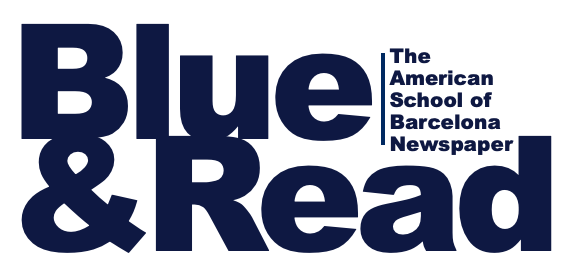Book bans have been what you might consider a hot topic recently, with headlines such as ‘US public schools banned 10,000 books in most recent academic year’(The Guardian), ‘Censorship at an all time high’ and ‘Atwood mocks the state of Utah for banning her books’ featured in recent news articles. To many people, the word censorship is associated with extremism and dictatorship; it may also be associated with the idea of burning books. To prevent someone from reading literature is a drastic course of action, and so we ask ourselves; can it ever be justifiable?
One of the most famous banned books of all time is Mein Kampf, banned because of the dangerous ideas it advocated for and because of the horrors committed by the author upon millions. Today, it can only be read if one has provided proof that it is a necessity in research for a scholarly article to be written in what countries? This can’t be a constant everywhere. Popular opinion would state that this is indeed rightfully banned due to its harmful content. But many who hold this opinion would not extend it to books that are claimed to be harmful because of different aspects concerning their nature. This warrants us to define harmful content. Upon researching this I found multiple varying definitions. For instance, UNICEF categorizes harmful content as “anything -an image, video or words- that causes offense, distress or harm.” Other sources suggest that “harmful content” refers to material that can cause physical, emotional, or psychological damage to individuals or communities, which often includes hate speech, violence, misinformation, and other inappropriate content.
The internet and, by extension, society does not provide one definition for harmful content; it may, in fact, be slightly different for each person, each age group, and each community. Is it that one perception of harmful content is deemed more accurate?
This is where the essence of the debate surrounding banned books is found. While some may view controversial content as reasonable and a good way to first expose young readers to a variety of aspects within a world that is not always easy to understand, others may see it as traumatizing and a pressing issue within society.
The justification for banning books is a complex and often contentious issue. Those who advocate for book bans might argue that certain content is inappropriate for certain audiences, citing concerns about age-appropriateness, potential harm, or offensive material. They might believe that banning a book can protect individuals or communities from ideas they find dangerous or harmful. And in some cases, they may be right that there is a time and place for every kind of book. Often, within schools in particular, there are very specific requirements for books to be considered appropriate; nonetheless, it comes down to why the book is getting banned. Is it out of hate for a specific community or is it out of a genuine wish to keep children safe?
Contrastingly, however, opponents of book bans argue that such actions infringe on free speech and the right to access diverse ideas. They believe that exposure to a variety of perspectives, even controversial ones, is essential for education and critical thinking. They often argue that rather than banning books, it’s more effective to promote open dialogue and guidance when discussing challenging topics. This relates to the idea that banning books doesn’t change anyone’s opinion and that constructing a society where things can be discussed freely can often be a much more productive way to solve difficult topics, not through ignorance of siad topics.
An example of a book that was wrongfully banned in the eyes of many is The Handmaid’s Tale by Margret Atwood, a dystopian novel set in a totalitarian society where women are subjugated and used for reproductive purposes. The story follows the story of Offred, a handmaid navigating the novel’s oppressive regime whilst longing for freedom and her lost family. The banning of this book is construed by some as an exercise in oppression and the dilapidation of knowledge, as the reason why it was banned was what some deem as dangerous ideals such as strong feminist themes, harsh condemnation of some religious ideals and explicit imagery. Margret Atwood herself highlighted the irony of banning a novel that addresses themes of censorship and authoritarianism. Atwood emphasized that such bans can stifle important discussions about society, freedom, and women’s rights, reflecting a broader trend of censorship that threatens literary expression and critical thought. Her comments often underline the necessity of engaging with challenging material rather than avoiding it.
Ultimately, whether book banning is justifiable often depends on cultural, social, and political contexts, as well as societal beliefs about freedom of expression and the role of literature in society. Controversial books may induce empathy for struggles you may not have considered before, or shed light on a real world issue in a way that young audiences can understand. The power of literature, specifically storytelling, is indeed profound and can have a great impact on one’s mind in an either positive or negative light.
Works Cited
“BBC Radio 4 – Dangerous Visions – Cover your eyes! Five bestselling books the censors didn’t want you to read.” BBC, https://www.bbc.co.uk/programmes/articles/5r4mF3kPcNYm37dSxCtw8Pq/cover-your-eyes-five-bestselling-books-the-censors-didnt-want-you-to-read. Accessed 1 November 2024.
“Book Ban Data | Banned Books.” American Library Association, https://www.ala.org/bbooks/book-ban-data. Accessed 1 November 2024.
“Book Bans.” PEN America, https://pen.org/book-bans/. Accessed 1 November 2024.
Oladipo, Gloria. “US public schools banned 10000 books in most recent academic year.” The Guardian, 23 September 2024, https://www.theguardian.com/us-news/2024/sep/23/pen-book-bans. Accessed 1 November 2024.
Pengelly, Martin. “Atwood responds to book bans with ‘unburnable’ edition of Handmaid’s Tale.” The Guardian, 24 May 2022, https://www.theguardian.com/books/2022/may/24/margaret-atwood-handmaids-tale-unburnable-edition. Accessed 1 November 2024.

